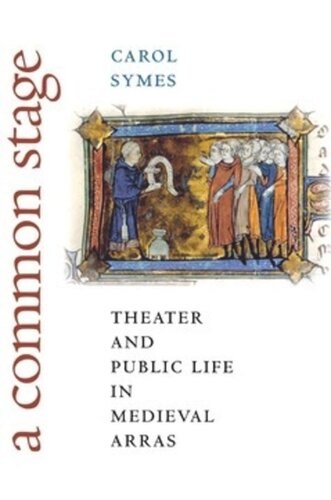

Most ebook files are in PDF format, so you can easily read them using various software such as Foxit Reader or directly on the Google Chrome browser.
Some ebook files are released by publishers in other formats such as .awz, .mobi, .epub, .fb2, etc. You may need to install specific software to read these formats on mobile/PC, such as Calibre.
Please read the tutorial at this link: https://ebookbell.com/faq
We offer FREE conversion to the popular formats you request; however, this may take some time. Therefore, right after payment, please email us, and we will try to provide the service as quickly as possible.
For some exceptional file formats or broken links (if any), please refrain from opening any disputes. Instead, email us first, and we will try to assist within a maximum of 6 hours.
EbookBell Team

4.7
16 reviewsMedieval Arras was a thriving town on the frontier between the kingdom of France and the county of Flanders, and home to Europe's earliest surviving vernacular plays: The Play of St. Nicholas, The Courtly Lad of Arras, The Boy and the Blind Man, The Play of the Bower, and The Play about Robin and about Marion.
In A Common Stage, Carol Symes undertakes a cultural archeology of these artifacts, analyzing the processes by which a handful of entertainments were conceived, transmitted, received, and recorded during the thirteenth century. She then places the resulting scripts alongside other documented performances with which plays shared a common space and vocabulary: the crying of news, publication of law, preaching of sermons, telling of stories, celebration of liturgies, and arrangement of civic spectacles. She thereby shows how groups and individuals gained access to various means of publicity, participated in public life, and shaped public opinion. And she reveals that the theater of the Middle Ages was not merely a mirror of society but a social and political sphere, a vital site for the exchange of information and ideas, and a vibrant medium for debate, deliberation, and dispute.
The result is a book that closes the gap between the scattered textual remnants of medieval drama and the culture of performance from which that drama emerged. A Common Stage thus challenges the prevalent understanding of theater history while offering the first comprehensive history of a community often credited with the invention of French as a powerful literary language.